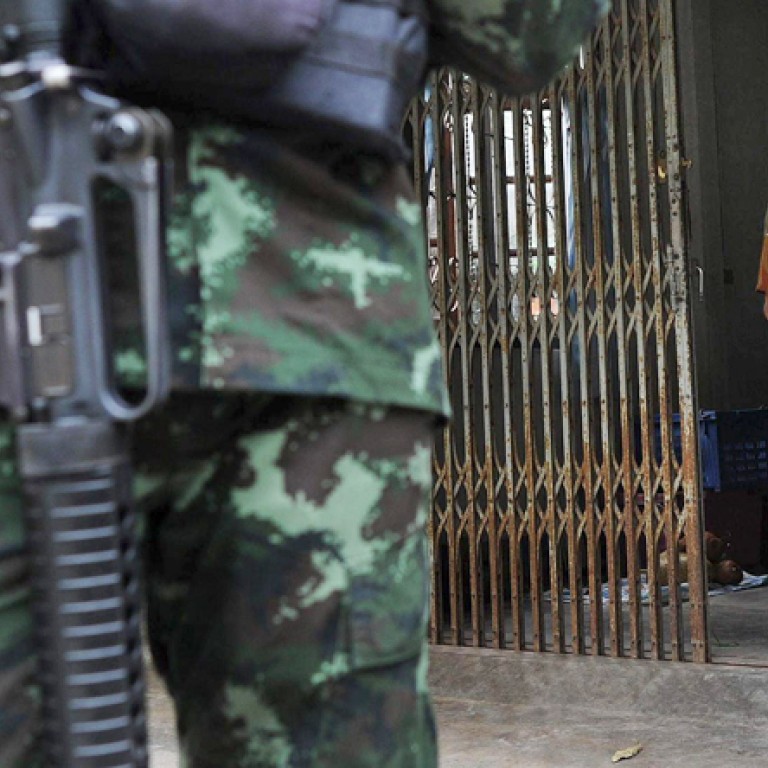
Widow Jiaw Pongthawil, the last Buddhist in a Thai Muslim village
Grandmother, 81, refuses to leave war-torn Thai village and lives alone among 1,200 Muslims
Guarded by Thai soldiers from rebel attacks, an 81-year-old grandmother - the last Buddhist in a Muslim village - refuses to abandon her home, defying a wider split between insurgency-plagued communities.
Since violence erupted in the Muslim-dominated Thai deep south in 2004, Jiaw Pongthawil has seen her Buddhist neighbours flee Baan Ga Doh, a remote village in a security "red zone" in Narathiwat province. She is now the only Buddhist among 1,200 Malay Muslims.
"I'm afraid. I have been attacked many times, but I have nowhere else to go. This is my property. This is my land," she said, her voice faltering.
It is a demographic shift playing out across the southern provinces of Pattani, Yala and Narathiwat, where a festering rebellion against Bangkok's rule has killed more than 5,700 people.
Estimates suggest half of the region's 400,000 Buddhists have fled in the nine years of war, wearied by near-daily attacks against state representatives and their perceived supporters, including many Muslims.
That decline - among a local population of 1.8 million - may shape tentative peace talks, according to experts who say nervous Buddhists are pressing Bangkok to secure their future.
Many Muslims lament the growing split from their erstwhile neighbours. But there is also little love lost for Thai authorities after decades of alleged human rights abuses and efforts to weave the culturally distinct south into the kingdom.
Those have included handing land and high status official jobs to Thai Buddhist migrants, stoking resentment in the local population and skewing the economic fortunes of the two groups.
Jiaw's home has been attacked three times in recent years despite the deployment of a squad of soldiers inside her compound. In the last attack, in July, a homemade grenade was lobbed from the road but failed to detonate after hitting a 10-metre-high security net.
The mother-of-six was widowed in 2007, leaving her alone in a spacious bungalow festooned with dusty curios and weathered posters of Thailand's revered king. Her military guards, stationed in sand-bagged dug outs, say she is a courageous Thai elder who they are willing to defend with their lives.
Security forces are often assigned to guard people of both religions who are considered targets of the militants for their supposed collusion with the state, with teams of troops flanking monks on their rounds and teachers as they make their way to and from school.
But while Jiaw is grateful for their protection, she is saddened that most of her Muslim neighbours no longer visit her.
"We used to live together ... we helped each other. But now they want all of us out. Buddhists and Muslims live apart," she says.
The Southern Border Provinces Administration Centre, which governs the restive region, said there had been no exodus of Thais, insisting Buddhists were in fact relocating to the conflict zone. But the available figures paint a starkly different picture.
The last survey in 2010 found 288,000 Buddhists living in the three provinces, 20 per cent fewer than a pre-war count in 2000.
Academics say the numbers have slumped further since 2010 in parallel with a rise in violence.
The flight marks a success for the rebels, a shadowy collection of groups that are fighting for a form of autonomy from Thailand, which annexed the south a century ago.
